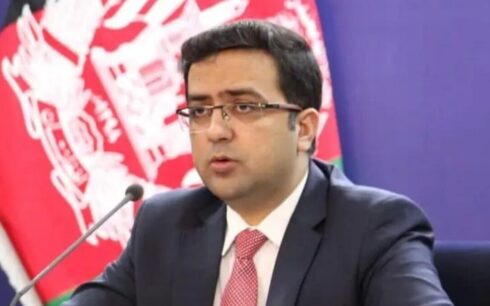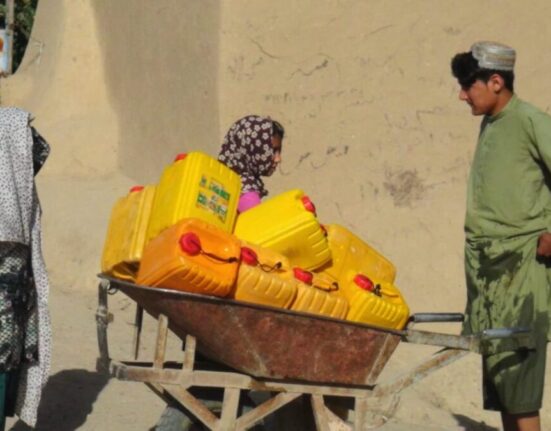The United States has not made any humanitarian aid payments to Afghanistan through the United Nations in 2025, particularly following Donald Trump’s return to the White House, according to an analysis of financial tracking data by Amu TV.
The review, citing the UN Financial Tracking Service, found that no U.S. funds have been allocated to Afghanistan this year. However, prior to Trump’s inauguration, the United States had committed more than $29 million for humanitarian assistance in 2025.
Washington had also pledged $234 million toward Afghanistan’s humanitarian needs for the year, the analysis indicates. But despite exemptions in the U.S. aid freeze, funding for some critical UN relief programs remains blocked.
On his first day in office, Trump suspended U.S. foreign aid, though Secretary of State Marco Rubio later announced an exemption for life-saving humanitarian assistance.
Still, questions remain over whether U.S. humanitarian aid to Afghanistan, under Taliban rule, has continued despite those exemptions.
According to UN financial records, the United States made five payments to the United Nations for humanitarian assistance to Afghanistan in 2025 fiscal year, totaling nearly $29.5 million. The most recent payment amounted to $16.7 million. However, all of these payments were made in 2024 to fund 2025 relief programs, primarily health care assistance. No new payments have been recorded since Trump took office on January 20, 2025.
Documents from USAID and the State Department indicate that Washington had pledged $234 million for the UN’s humanitarian response in Afghanistan, covering about 10 percent of the UN’s total funding needs and 74 percent of all pledged contributions.
A review of the UN Partnership Committee’s financial records—covering the 30-day period ending February 6—also found that the United States has not contributed to the UN’s core budget.
The Swiss-based Assessment Capacities Project, a humanitarian research organization, has reported that despite exemptions in the U.S. aid freeze, funding for critical UN relief programs remains stalled.
For more than three years under Taliban rule, much of U.S. humanitarian assistance to Afghanistan has been delivered through the United Nations. But as Washington has now restricted its assistance to humanitarian relief, the economic consequences have been severe.
Dozens of aid organizations have shut down, the currency market has been volatile, economic instability has worsened, and the cost of essential goods has surged. The funding halt has also disrupted key UN aid programs, including reproductive health services for Afghan women.
The United Nations Population Fund (UNFPA) recently announced that nine million Afghan women will lose access to reproductive health and protection services due to funding shortages.
While the United Nations has acknowledged that U.S. aid represents a significant share of Afghanistan’s humanitarian funding, concerns over oversight and financial mismanagement persist.
John F. Sopko, the former Special Inspector General for Afghanistan Reconstruction (SIGAR), previously reported that the United States provided over $3.7 billion in aid to Afghanistan under Taliban rule. A significant portion of those funds, he said, ultimately benefited the Taliban.
Meanwhile, Representative Tim Burchett, a Republican from Tennessee, has alleged that $40 million per week is still being sent to Afghanistan’s Taliban-controlled government, despite the official U.S. aid freeze. Taliban officials, however, have denied having access to foreign aid funds.





